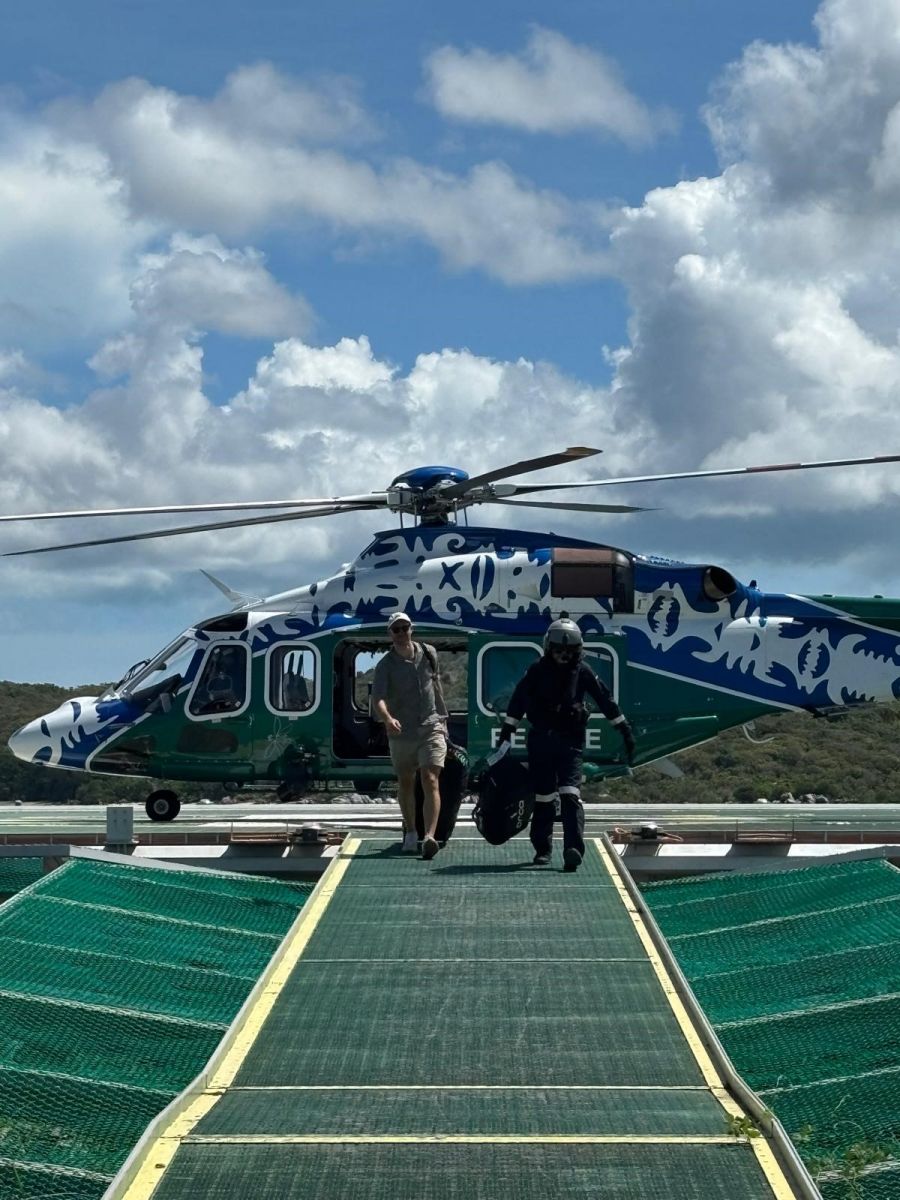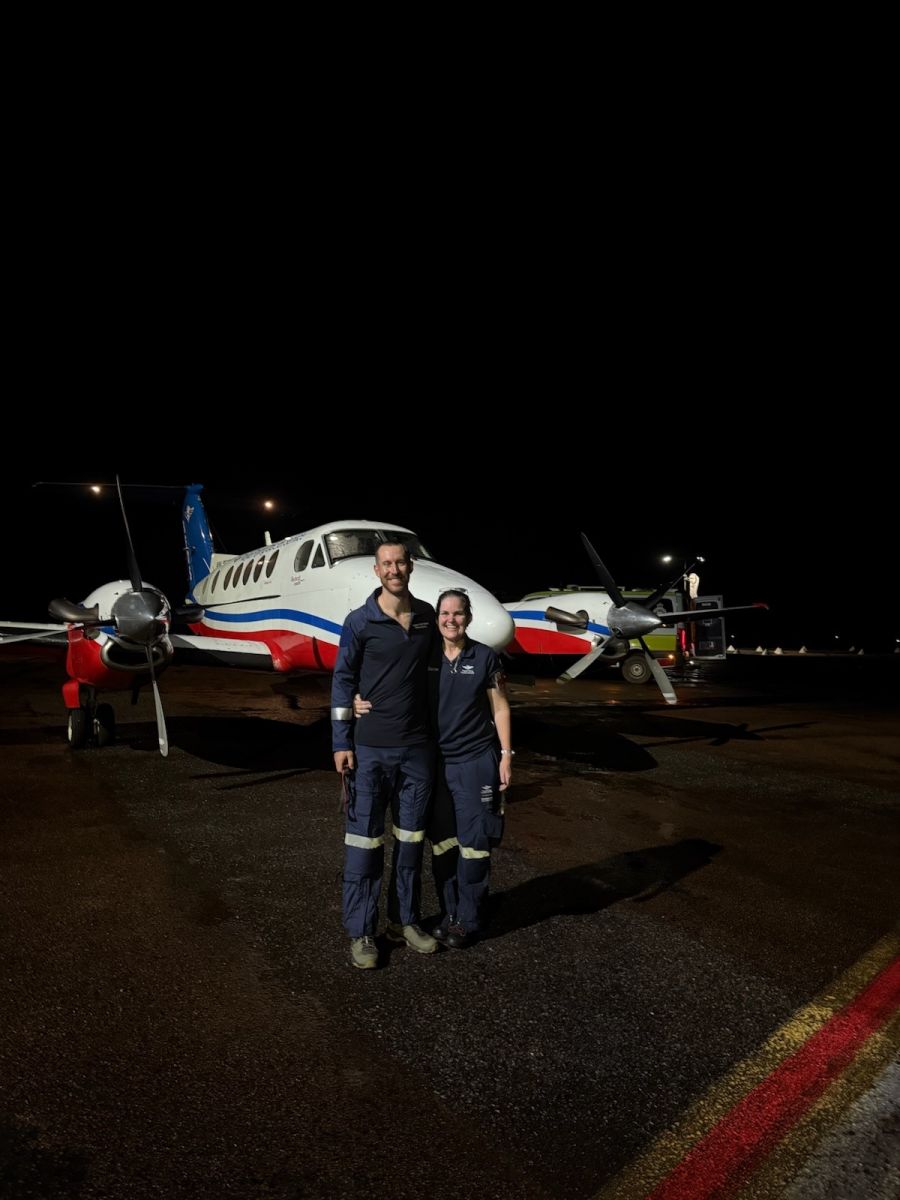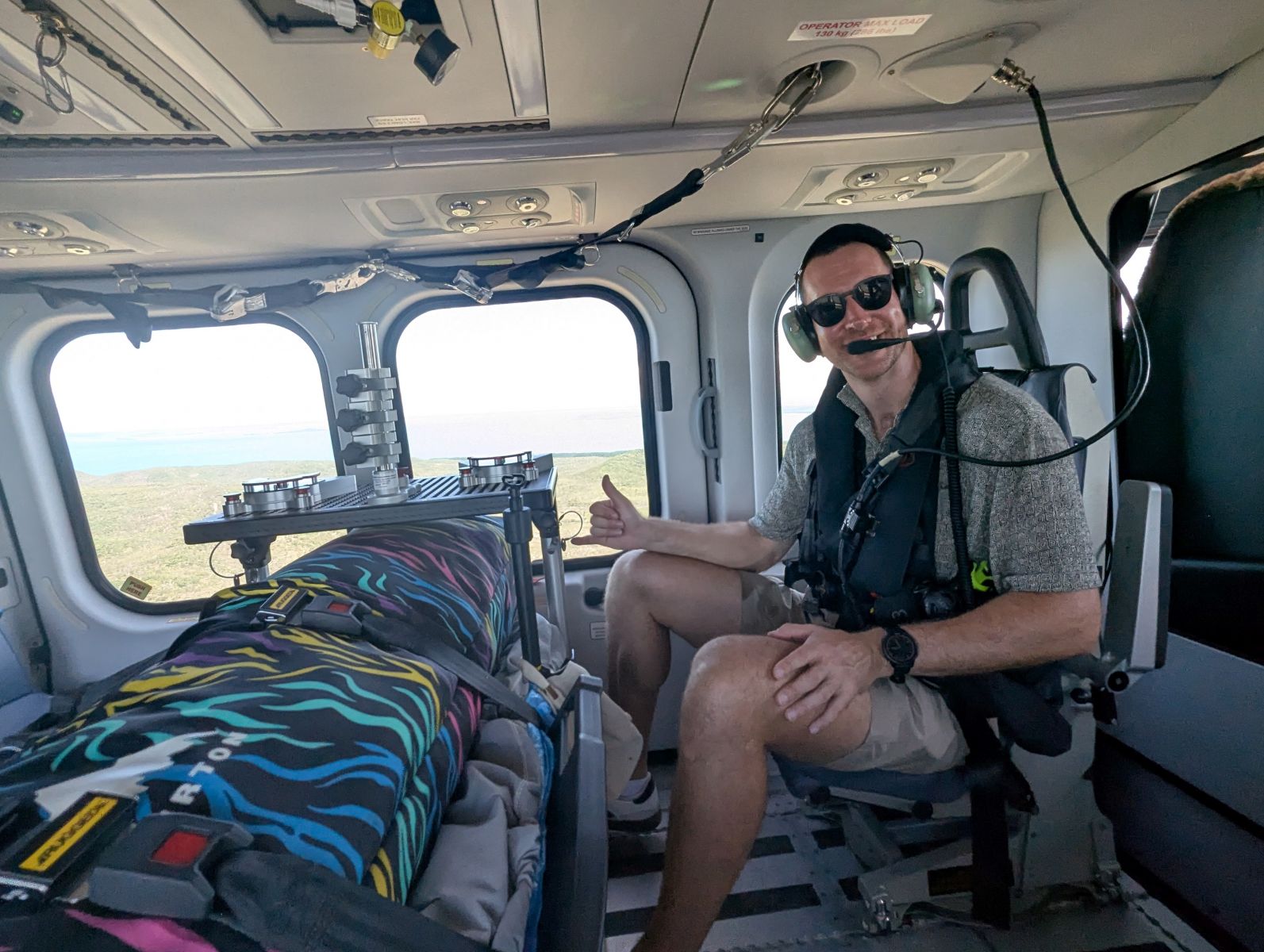14 August 2025
From Adelaide to the Torres Strait: Why Dr Ryan Agnew Chose to Stay in the North

When Dr Ryan Agnew first left Adelaide to take up a rural placement in Far North Queensland, he thought it would be a short-term opportunity — a chance to gain experience where few existed for junior doctors back home.
But the move quickly became something more.
“I originally decided to move because there were fewer opportunities for PGY1-2 medical graduates to work rurally in South Australia and I heard about the rural generalist pathway in QLD and thought I didn't have much to lose trying it out,” Dr Agnew explains.
“I got a position in Cairns and loved it. I convinced a bunch of my SA friends up in PGY2 and then I ended up staying up in Far North Queensland.”
Today, Dr Agnew is a Fellow of the Australian College of Rural and Remote Medicine (ACRRM) and based at Thursday Island Hospital, where he works as a General Practitioner Anaesthetist (GPA) — a role that combines hospital, retrieval and primary care medicine.
It’s a career he’s carved out in one of the most remote yet rewarding regions in the country, and it all started with a single intern term.
A Firsthand Lesson in Health Equity
Dr Agnew says his time in Cairns and the Torres Strait has deeply shaped his clinical approach and commitment to health equity.
“I had heard about Aboriginal and Torres Strait Islander health throughout university, but it wasn’t until I saw it firsthand in my first term as an intern in Cairns that it really struck home,” he says.
“Working in the renal team with dialysis-dependent patients who were younger than me had a strong effect. The ‘uncommon’ complications of chronic disease were sadly quite common, even in the young.”
His time working in primary care on Thursday Island gave him a new perspective.
“It allowed me to be involved early to help prevent these terrible complications,” he says. “I was also fortunate to have amazing clinical mentors in both the primary care space and the hospital space. I felt very well supported throughout the entire time.”
Experience You Can’t Get in the City
The Far North has offered Dr Agnew hands-on experience that few urban doctors ever encounter.
“I’ve had many weeks where I spent more hours in a chopper flying to remote communities than in a car,” he says.
“I’ve run clinics on remote islands, built relationships with communities and engaged them in public health responses. I’ve also lysed a STEMI on the border of Australia and PNG. It’s certainly been a unique experience.”
He completed all of his general practice training and ACRRM assessments on Thursday Island, and furthered his anaesthetic skills in Bundaberg, supported by a collaborative rural training network. The ICU and ED time helped prepare him for the unique retrieval work undertaken by GPs in the Torres Strait.
Life and Learning in the Torres Strait
Dr Agnew’s passion for rural health is matched by his love for life on Thursday Island.
“It’s a privilege to be able to live and work in the Torres, where a unique blend of cultures interacts with the environment in amazing ways,” he says.
“The team environment on Thursday Island is also unique in that it is a very intimate living space, and your colleagues become friends very quickly.”
The lifestyle doesn’t hurt either.
“Fishing, diving, boating, and helicopters are also really cool.”
Advice to Future Rural Doctors
Asked what advice he would give to doctors considering a regional move, Dr Agnew offers a dose of humour — and truth.
“Don’t do it, you’ll find a bunch of hobbies that take up all the time that you save from not sitting in traffic. Furthermore, you will struggle to enjoy places that don’t have easy access to diving, rainforests, waterfalls and fresh fruit.”
But underneath the jest is a compelling message: rural medicine isn’t just a career move — it’s a life-changing opportunity.
And with the support of training pathways like those offered by NQRTH, doctors like Dr Agnew are helping to build a stronger, more connected health workforce in northern Queensland.


NQRTH is an initiative of the Australian Government's Integrated Rural Training Pipeline (IRTP) and is facilitated by James Cook University in partnership with public and private hospitals, Queensland Aboriginal and Islander Health Council (QAIHC), health services, Aboriginal Community Controlled Health Organisations (ACCHOs) and GP clinics.
Cairns region
(07) 4226 7138
Central West region
(07) 4764 1547
Mackay region
(07) 4885 7122
North West region
(07) 4764 1547
Torres and Cape region
(07) 4095 6103
Townsville region
(07) 4781 3424





